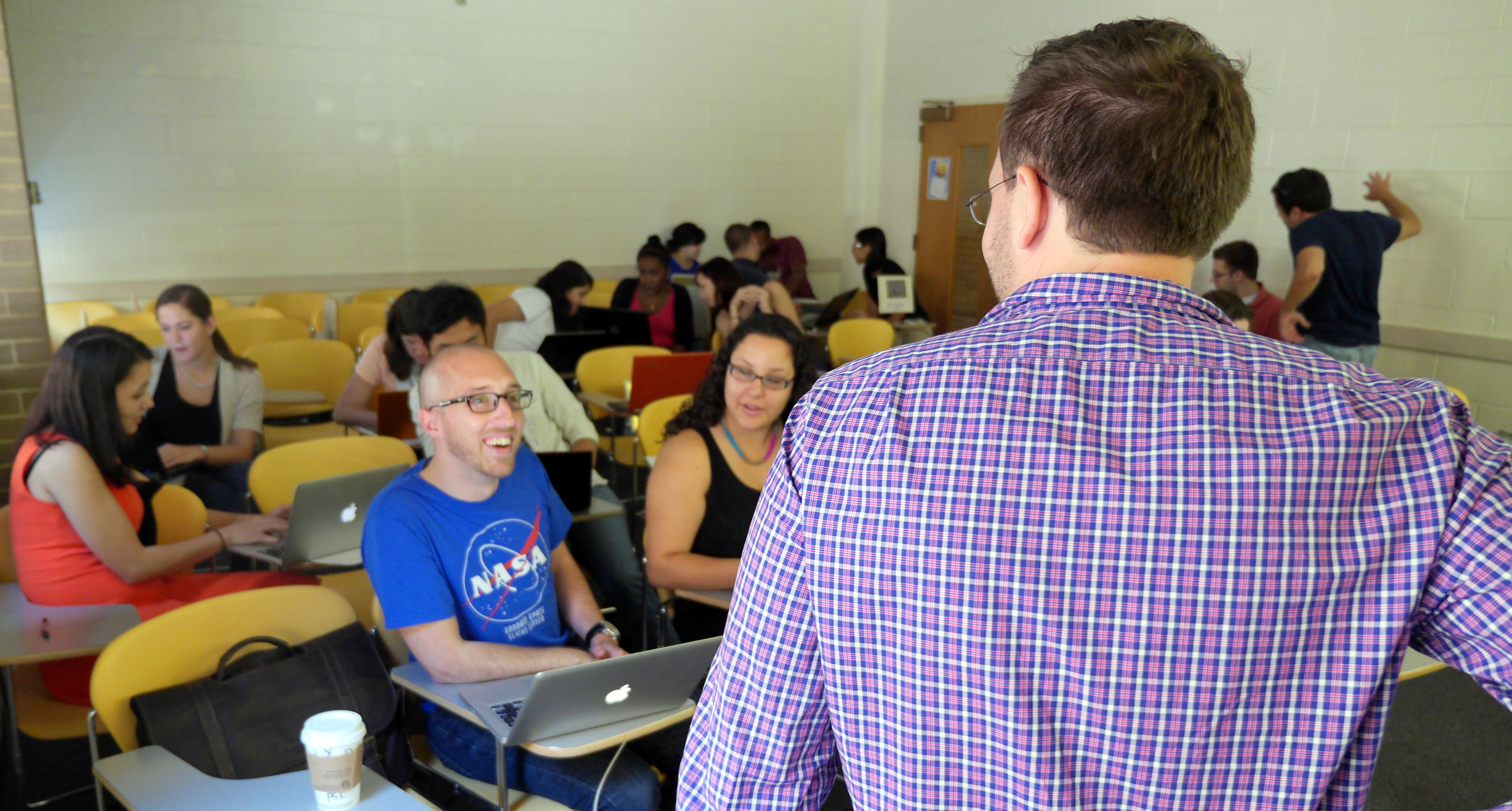Based on the explosive growth of Massive Open Online Courses (MOOCs) this year, it might appear that the future of online education consists of passively clicking through videos and quizzes. This model, while highly scalable, is prone to collapse with personalized interaction and are generally taken by employed males in the US (rarely finishing a class). Even the founders of Khan Academy and Coursera admit that MOOCs can’t replace classrooms and have difficulty teaching non-cognitive skills (teamwork, ethics, etc.)
Why not? What does it take to create a classroom experience? A typical example might involve a teacher designing a detailed syllabus, arranging class layout and chairs for discussion, distributing engaging reading material before class, providing personalized feedback in real-time to students, coordinating group projects, and grading homework. When that classroom becomes “massive” and is extended to 10,000+ students, then the teacher has to focus on the most scalable portion of the course: Content.
The MOOC as a teaching tool was never meant to replace the classroom; it was meant to replace the lecture with better course materials. And that’s part of the genius for organizations like Coursera and Khan Academy for flipping real-world classrooms. By using prerecorded video content of the one-size-fits-all lecture, tech-savvy teachers can employ technology to humanize the classroom, focusing class time on personal engagement instead of information transfer. Some professors are going even further, using video conferencing tools like Skype to reach out to bring prominent figures such as the Dalai Lama into the university classroom.
But if MOOCs represent just another form of digital course content that tech-savvy educators can use to engage students, then the real question is: What happens when the classroom itself is moved online?
The simple answer is that teachers will lose a great deal of in-person information richness they need to do their jobs, at least in the short term. While different platforms will optimize for alternative methods of content delivery and interactive facilitation (think real-time video lectures versus forum discussions), it’s unlikely that any will be as powerful as an in-person discussion guided by an experienced and knowledgeable educator. Can you imagine any online interaction reflecting the interactive nature of a small classroom?
Credit: Dead Poet’s Society (1989).
But what comes next could also be an improvement. In the same way that the Google Classroom project opened to the public this week to help teachers manage student learning in and out of the classroom, so too can educators apply new tools to the needs of online students. As standards improve with the roll out of the Experience API, student data can even be used to create better content — much like how Netflix is able to create shows around viewer preferences and BuzzFeed invests in engineering to better deliver viral content.
This process puts a great deal of strain on educators to incorporate technology into their lesson plans. And there is little reason why some of the leading subject-matter minds and hands-on facilitators should be forced to learn to program and animate. But as the field starts to reconsider online education as a service, new opportunities open up for educators to choose their content, shape their classroom, and pick their students from anywhere in the world.
But until we stop trying to substitute “lecture” for “teacher,” we can’t have a real conversation about building the tech solutions educators need to do their jobs.



